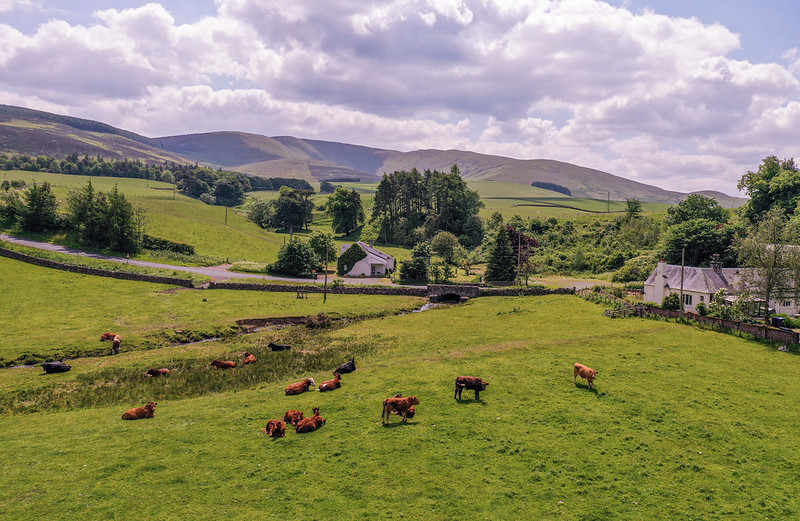Statistics
Making Better Use of Data for Land-Use and the Environment
September 13, 2021 by Ally McAlpine No Comments | Category Environment and climate change, Land use, Working in statistics
In this blog I will talk about work we are doing to make better use of data and evidence for land-use and the environment. I am also calling out to environmental and land-use analysts to get involved. Previously I wrote about improving the use of data that we hold with projects like data linkage. This will improve our understanding of farmers and their families wellbeing. It will also help us to understand their ability to adapt to the future and land use change.
But to support policies aimed at improving land-use and nature based solutions to climate change, we need to think about how we produce our data. This includes the standards of our data.
Our Scottish Crop Map took many years to build. The first task was to get the vast amounts of data in shape to analyse which was a long process. If we are to speed up this process from start to finish for new data models we need better information behind the key land and environmental data sets. Also improving access to data is a long standing problem. And this is a familiar story we are hearing from other analysts working on similar projects in land use statistics.
Our job is to support policy development with the best evidence as Scotland play’s its full part in tackling the twin global crises of climate and nature. Our data, and other environmental land-use data needs to be at the heart of decision making. To do this we have been working on a number of projects to improve the re-use of data. The goal is to make it easier to access and research environmental and land-use data that we produce or develop.
https://www.flickr.com/photos/scotgovrural/42159129095/in/photostream/
How can we make better use of data for land-use policy
Having our data ready to support policy decisions will help achieve targets for climate change, biodiversity and environment. But having high quality data will provide policy makers with tools to help design efficient and effective policies. This will improve the chances of meeting or exceeding targets in these areas.
By using spatial data better will help spot issues. Issues like, where is it best to plant trees or restore peatland? Can data be linked to other environmental conditions? By doing these things better we can model and predict how policies will improve conditions. And being able to then track and monitor progress will help policy refinements and ensure outcomes are met as it is put into operation. But to measure the true successes, we need to know the environmental starting point or ‘baseline’.
Making better use of data for land-use and the environment doesn’t stop once a policy has been developed. It also needs to work when the policy is put in to action. So, the flow of data between partner organisations and agencies is also crucial to supporting land-use policy. For example, a farmer may want to put in a slurry store on his farm to improve environmental conditions. This currently could require three separate forms to be filled out. And each looking for similar data but in different formats. This creates a double barrier of time and administration.
How can we improve the access to environmental data
Assistant statisticians in RESAS have been going out and listening to the views of other analysts. It seems that these problems are not unique. By taking these experiences with our own, we want to develop spatial mapping tools and data catalogues to make it easier to access and re-use environmental data for policy makers. Because we have heard about these problems we have tried to develop our own solutions and you can test our first phase of work that tries to do that here. But to really address the problems, we need to think broader.
To tackle big problems around data gaps, standards and flows, it will require focussed effort from environment analysts. That is why I am asking for analysts to get in touch to help us develop a plan to improve environmental and land-use data. I also want to improve our data and re-use of data in line with FAIR principles. These principles are:
– Finadability
– Accessibility
– Inter-operability
– Re-use
Adopting these principles will make it easier for researchers to re-use data and will make a game changing difference to how Scotland captures environmental data and how it is utilised to support land-use policy.
On Wednesday 15 September 2021, you can join an introductory session where I will present how we will take forward a collaborative effort to improve and make better use of data and evidence for land-use and the environment. This will be the first of many sessions to develop a large scale project to improve the collection, use and re-use of data.
If you have missed this event or want more information, then please leave a comment below or email me.
Tags: data, data linkage, Land Reform, open data, Scotland



Leave a comment
You must be logged in to post a comment.